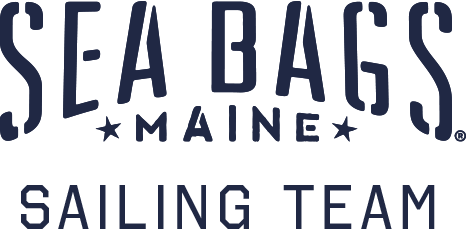Finding Success by Focusing on 1% Improvements at the 2024 J24 North Americans
Beginning the sailing season with the J24 North American Championship was not ideal. A few warm-up events would have helped. But that is what our busy work, family, and sailing-life balance allowed. We counted on having a full day to practice on Thursday but unfortunately a tornado warning, strong winds gusting as high as 40 mph, and heavy thunder and lightning storms only allowed for a short practice.
Thursday, when we were afforded our brief practice window, I loaded the team bags onto the boat and was surprised by how heavy they all were. A light boat is a fast boat, and skippers are notorious for wanting to reduce weight brought onto the boat. My previous complaints to the crew had done little to change this recurring issue. As we sailed in from the practice, I decided to try something new and shared a lesson from James Clear’s book Atomic Habits. I said, “As I lifted each of your bags up on the boat, I noticed that they were quite heavy. I challenge each of you to analyze what you bring on board for racing and get 1% better about cutting the weight of what you need on board.”
Some classic excuses and defensiveness arose as a result, so I shared the example Clear provided at the beginning of Atomic Habits about the British Cycling Team that had never won a Tour de France. In 2004 the team brought in a new performance director who rigorously followed the concept called the “aggregation of marginal gains” also called “1% improvements” which he applied to all areas that affected a cycling program. This coach focused on things other teams likely did not focus on, like how to properly wash your hands to reduce sickness and studying which pillows and mattresses led to the best night’s sleep and bringing them to big events. They analyzed every component of their program that could affect performance and made small changes that alone wouldn’t make much difference but collectively made for gigantic gains. The team set out to win the Tour de France in five years. They did it in three.
Back to our team, instead of discussing the contents of their bags as a group, I asked teammates to decide independently what they needed and what they could leave on shore. The result was incredible the next morning. I heard everyone thinking carefully about additional 1% improvements and what was brought onto the boat for racing was significantly lighter. This shifted mindset proliferated across other aspects of our game plan throughout the event. We typically struggle to get off the dock in the morning, but knowing we had next to no practice, we arrived at the club before they even unlocked the gates, snuck in at the edges, rigged the boat, and were the first team off the dock. This was repeated on Saturday. Out on the water, we practiced our starting routine loop, recorded our upwind numbers, and readied our minds for racing.
The team dynamics were amazing throughout the entire event—I witnessed many things to be proud of including a subtle shift towards a positive attitude centered upon gratitude, backing up teammates when they needed support, dealing with issues calmly and supportively as they arose, effectively and efficiently doing our pre-race homework immediately following each race, and putting into practice all that we are working on with our coach Mike Ingham.
We plan to carry on the 1% improvement as we get back into our normal lives off the water. We have scheduled a team debrief on Zoom, something we’ve never done before, with the intent to review what we learned and discuss what we want to improve for the next event, the Corinthian Nationals in Sayville, NY.
Although the decision to focus on the contents of our bags was not planned, focusing on making 1% improvements for all aspects of our competitive program should carry over into everything we do as a team to reach our overarching goals. In other words, focusing on collectively improving the small things will make large gains in our overall achievement. Some examples:
● Overall fitness: core, mental, aerobic
● Visualization: when off the water, visualizing exactly what we do, what we say, both physically and mentally
● Boat preparation: smooth and polished hull; sails properly acclimated; weight reduced as much as possible; mast tuned properly
And on and on… as Clear has said,
“True long-term thinking is goal-less thinking. It’s not about any single accomplishment. It is about the cycle of endless refinement and continuous improvement. Ultimately, it is your commitment to the process that will determine your progress.”
1% better on and off the water.
Written by Erica Beck Spencer, Skipper



